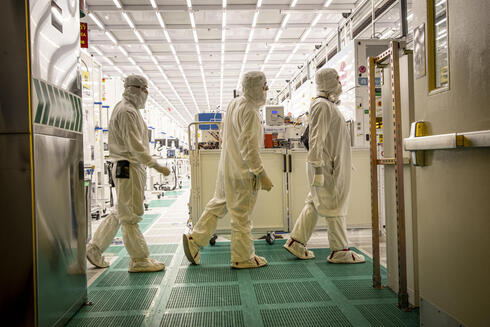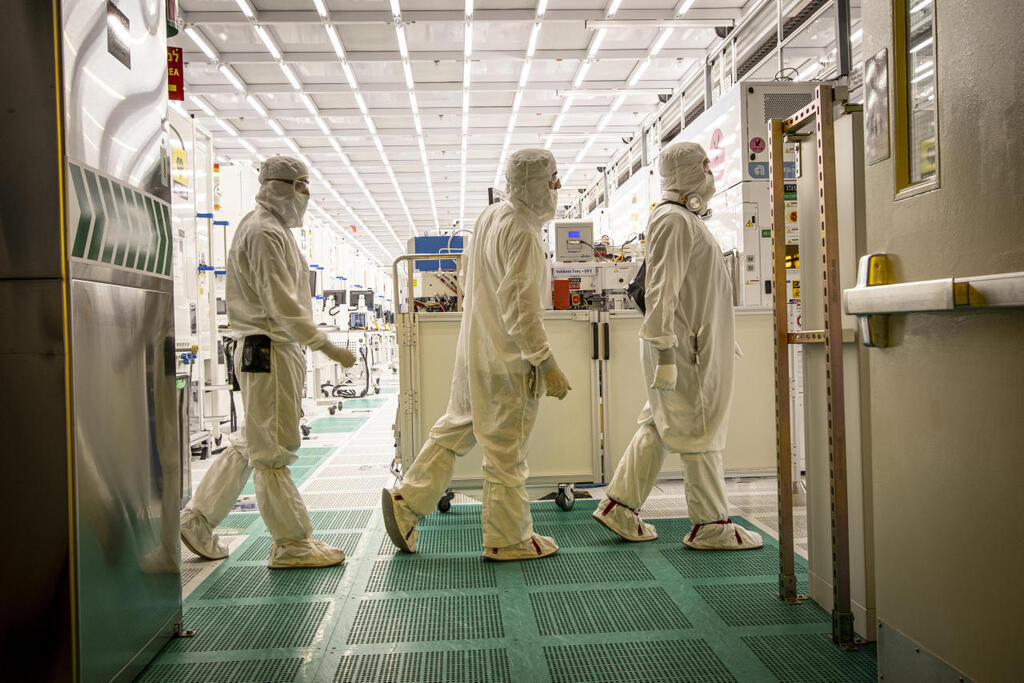
"Intel can no longer afford to build a production line without knowing in advance who its customers will be"
The freeze on construction at the Kiryat Gat Intel plant is a severe blow to Israel, potentially creating ripples throughout the industry. This situation arises from internal troubles within the faltering company, which is hesitant to open a new plant without having customers, especially since subsidies abroad are much higher.
Intel’s decision to freeze the expansion of its factory in Kiryat Gat, a massive $25 billion project, couldn’t have come at a worse time. Although mostly related to Intel's internal problems, which are as numerous and existential as those of Israel, there is great fear of another strong blow to the already damaged economy. This likely explains why the Ministry of Finance tried to deny the dramatic postponement of the factory expansion last Monday after the announcements in Israel, which Intel itself did not deny.
Beyond the financial damage to suppliers whose contracts have been canceled for the time being and may be renewed in the future, and beyond the loss of revenue as a result of a delay in the start of production, questions are being raised in the world as to whether Intel's decision is related to Israel's precarious geopolitical situation. Intel is considered the largest private employer in the economy with 12,000 employees. If it decides to freeze expansion here, it could serve as a signal to many others. In practice, this is a more complex event, which is better defined as Intel's troubles meet Israel's troubles. And this is resulting in a stalemate.
In recent weeks, Intel has informed several infrastructure providers that are working on the expansion of the existing plant to stop and delay work. Infrastructure company Lesico reported to the stock exchange that: "A notification was received from Intel to delay and stop some of the work for the expansion of the company's new chip factory in Kiryat Gat, the scope of the remaining work is NIS 90 million." In the huge project, for which Intel received incentives of $3.2 billion from Israel, it committed to the purchase of services and products at a value of 60 billion shekels.
Intel's official response to the delay is that "Managing a project of this magnitude, especially in our industry, usually involves schedule adjustments. Our decisions are based on business conditions, market dynamics, and responsible capital management."
Sources familiar with the situation explain that the current freeze affects one part of a factory designed to have two clean rooms. Work continues as usual in the first clean room, while the second is on hold pending a decision on the technology it will use, i.e., what type of chips it will produce. "Due to the company's complex financial and business situation, it can no longer afford to build a production line without knowing in advance who its customers will be," say sources close to Intel.
Wars with Nvidia
The factory in Kiryat Gat is intended to be the first Intel factory in Israel to produce for both the company and external customers, part of a strategic shift led by CEO Pat Gelsinger. This move aims to compete with manufacturers in the East and bring additional income to Intel. As part of this strategy, Intel acquired the Israeli company Tower, an independent chip maker. However, a $5.5 billion deal was blocked by Chinese regulators due to competition fears amidst the US-China trade war targeting the chip industry. Additionally, the U.S. has significantly increased incentives for establishing chip manufacturing plants domestically. The Ministry of Finance’s generous assistance to Intel in Israel cannot compete with the subsidy package Intel received for its new factory in Ohio, which includes $8.5 billion in direct financing, $25 billion in tax benefits, and $11 billion in federal loans with improved terms. The situation is similar in Germany, where Intel is also setting up a factory.
The change in subsidies is significant for Intel in light of its difficult business situation. Intel has been experiencing a drop in revenue and a transition to losses for over a year, having failed particularly in the manufacturing sector to reach the market with advanced chips in time to compete effectively. This is especially significant as rival Nvidia is seeing an explosion in demand for chips that meet the processing requirements of artificial intelligence applications.
Intel shares have fallen by 38% since the beginning of 2024, and the company now has a market value of only $131 billion. The attempt to establish new production activities has not yielded the expected results, with first-quarter revenues amounting to only $4.4 billion, a 10% decrease compared to the corresponding quarter. Intel also provided a disappointing forecast for the rest of the year. Given this backdrop, today's Intel cannot manage the establishment of multiple factories worldwide as it once did, requiring either external financing or customer orders. For example, alongside the expansion of the Kiryat Gat factory, Intel is also working on a new factory in Ireland, expected to start operations in 2028/29. Meanwhile, Intel executives in Israel are beginning to relocate to Ohio to assist there. Sources around Intel explain that over the years, Israel has accumulated extensive knowledge in production processes and factory establishment, knowledge that is lacking in the USA or Germany.















